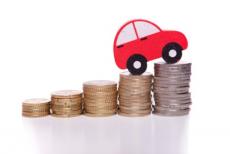
Unemployed motorists pay £227 a year more for their car insurance than the average driver.
Although the cost of insuring a car is falling generally, those without a job are paying 58% more than those in work, new research from MoneySuperMarket has revealed.
It found that motorists fork out an average of £390 a year to cover their vehicle, compared to £617 for the unemployed, with premiums for those out of work falling by just 2% in the past 12 months.
That drop compares unfavourably to the decline in insurance costs overall, with premiums falling from £439 in the first three of months of 2013 to the current rate of £390, a decrease of 11%.
Car insurance expert at MoneysuperMarket Kevin Pratt said: "As car insurance is a legal requirement those who are likely to be struggling financially are least able to afford these higher premiums and in some cases might be priced out of being able to insure their vehicle.
"It is easy to see how this can become a vicious cycle of not having a car to help find and get work because they don't have an income to be able to afford to drive it."
He added: "It could also be a huge barrier for those seeking employment, especially in rural areas where people depend on having their own vehicle, as well as a factor where potential job opportunities involve working unsocial hours."
Compare car insurance quotes from more than 130 insurers
Here are some top tips from MoneySuperMarket for unemployed drivers to help keep care insurance costs down.
A discount on a car insurance premium as a reward for having not made a claim on the policy. The NCB is earned for every year of claim-free driving; a driver will earn another year’s NCB to a maximum of five years. The actual discount on the insurance premium will depend on the insurer. If you make a claim, your insurance company may reduce your discount by a number of years so you have to “earn” these over again or it may revoke the NCB entirely. Motorists can generally transfer their NCB across to another insurer and can pay an additional premium to protect it so should they have an accident, the NCB remains intact.
This is more usually a feature of car insurance but it can also crop up in contents, mobile phone and pet insurance policies. An excess is the amount of money you have to pay before the insurance company starts paying out. The excess makes up the first part of a claim, so if your excess is £100 and your claim is for £500, you would pay the first £100 and the insurer the remaining £400. Many online insures let you set your own excess, but the lower the excess, the more expensive the premium will be.